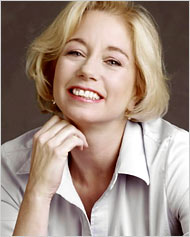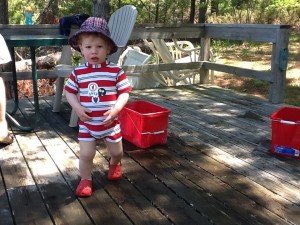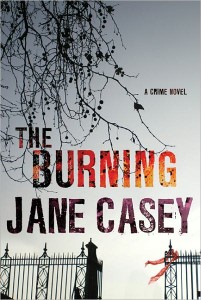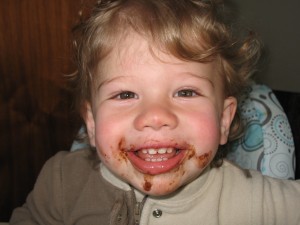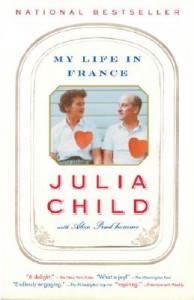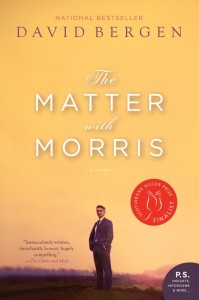 After what feels like years, I am finally coming to the end of my shelf of Bs. David Bergen’s The Matter with Morris was a particular stumbling block. Not that I have to “relate” to the characters in a book in order to enjoy reading a novel. But in this case, Morris, a middle-aged man suffering a through a life crisis after the death of his only son, Martin, was a character I felt was almost impenetrable to me as a reader. Maybe that’s too severe of a word, “impenetrable.” Maybe it was more that I really couldn’t find a way into him–I understood his suffering. I felt his pain, intensely. I can’t even imagine what it would be like for a pacifist to lose their child in the most tragic of ways (he was shot by friendly fire; a mistake by one of the men on his own patrol, so senseless). I can’t even imagine how that would rip a family apart, as it does Morris’s. Yet, it still took me probably close to eight different tries to finish reading this novel.
After what feels like years, I am finally coming to the end of my shelf of Bs. David Bergen’s The Matter with Morris was a particular stumbling block. Not that I have to “relate” to the characters in a book in order to enjoy reading a novel. But in this case, Morris, a middle-aged man suffering a through a life crisis after the death of his only son, Martin, was a character I felt was almost impenetrable to me as a reader. Maybe that’s too severe of a word, “impenetrable.” Maybe it was more that I really couldn’t find a way into him–I understood his suffering. I felt his pain, intensely. I can’t even imagine what it would be like for a pacifist to lose their child in the most tragic of ways (he was shot by friendly fire; a mistake by one of the men on his own patrol, so senseless). I can’t even imagine how that would rip a family apart, as it does Morris’s. Yet, it still took me probably close to eight different tries to finish reading this novel.
Let me digress for a moment: I think, personally, that David Bergen is among this country’s finest, finest writers. His novel, The Retreat, is one of the best books I read last year while on mat leave. He has a gentle, yet direct writing style that I admire. He has an ability to add emotional weight to characters and situations that manages to both move the story forward but also keep resonating with the reader–that’s an impressive skill. There were moments of exceptional writing in The Matter with Morris. But, still, that didn’t get me passed feeling Morris, as a character, fell kind of flat for me, and I think it’s because I just couldn’t relate to him. Yes, I understand the tragic, shocking reaction to his son’s death. Yes, I completely see the impetus for Bergen to want to write the emotional side of what’s been occupying the front pages of our newspapers for years. Yes, Morris was a rich, deeply troubled, quite fascinating character. Yet, I just didn’t get him. That is wholly a fault of mine and not a fault of the author’s–let’s be clear.
On the whole, I don’t know why I find emotional breakdown-type stories of the “midlife crisis” kind so, well, frustrating. There’s elements of cliche to what Morris goes through, he falls for a younger woman (who happens to be a sex worker); he wants to ‘exit’ from society by removing all of his life savings from the bank and loading them up in a safe; he’s alienated by his children for his boorish behaviour. Bergen’s writing elevates all of this to a level that would encumber lesser writers, and there were sections where the book had me in its clutches, but then Morris would do something so frustrating that I’d be lost again.
Regardless, I’m pleased that it’s up for the IMPAC this year. I think anything to get people reading ANY books by David Bergen is a good thing because, like I said above, he’s one of our greatest treasures.
